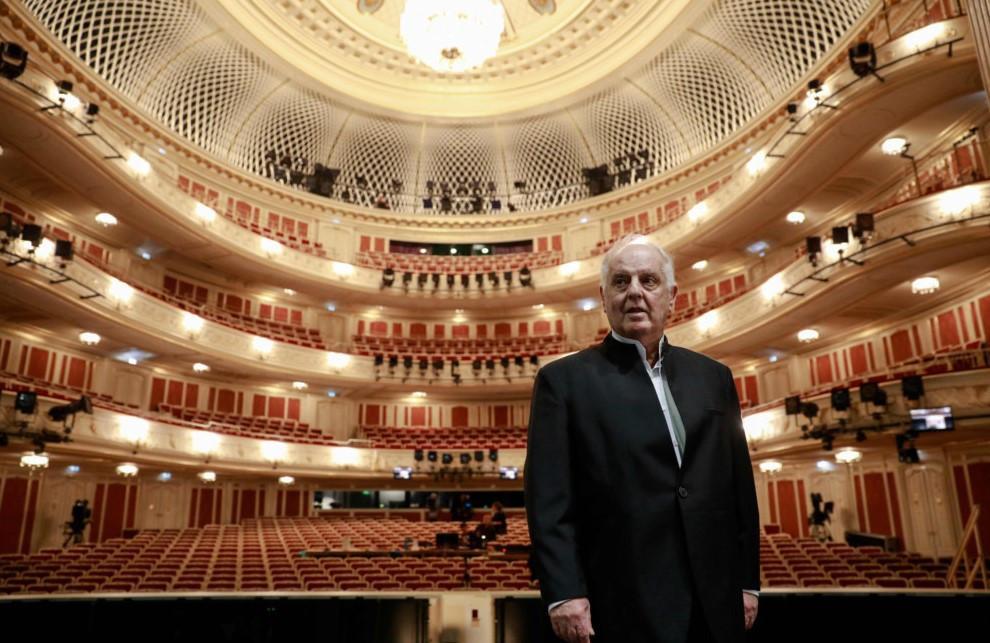
World-renowned conductor and pianist Daniel Barenboim said on Jan. 6 he was stepping down as general musical director of Berlin’s State Opera due to deteriorating health, marking the end of an era at the fabled institution.
Argentina-born Barenboim has been acclaimed for a stellar career which saw him begin performing internationally as a pianist aged 10 and then become a leading conductor.
The child of Jewish piano teachers has also been an outspoken campaigner for peace in the Middle East.“
Unfortunately my health condition significantly worsened in the last year,” Barenboim, 80, said in a statement announcing his resignation from one of the world’s top classical music venues.
“I can no longer deliver the performance rightly expected of a general musical director.”Barenboim, who had held the position since 1992, asked Berlin’s top culture official Klaus Lederer to release him from his contract on Jan. 31. It was not immediately clear who would succeed him.
The conductor said his years at one of Berlin’s three premier opera houses had been “musically and personally inspiring in every way.”
“I believe the State Opera and I brought each other great happiness,” he said, adding that he was “especially pleased and proud” that the venue’s Staatskapelle orchestra had in 2000 elected him chief conductor for life.“
Over the years we became a musical family and will remain one,” he said, also expressing his “veneration” of the opera house’s solo singers, choir and staff.
He thanked former German chancellor Angela Merkel and ex-parliamentary speaker Wolfgang Schaeuble for their loyal attendance at his performances, and Lederer for standing by him “in difficult times” in a reference to past allegations of him bullying musicians.
“I will of course remain - as long as I live - deeply connected with the music and am ready to continue conducting, especially with the Staatskapelle Berlin.”
In October, Barenboim said he would be dropping “some of his performing activities, especially conducting engagements,” in the coming months after he was diagnosed with a “serious neurological condition.”He had already cancelled a series of concerts for health reasons last year.
Barenboim had most recently conducted two sold-out New Year’s concerts of Beethoven’s Ninth Symphony at the State Opera.
The German capital’s Philharmonic hall said he would take up the baton as planned for three performances this weekend.
State Opera house director Matthias Schulz said the institution owed Barenboim its “eternal gratitude”.
“For more than 30 years he has let his inexhaustible strength as an artistic personality with global renown benefit this house and his Staatskapelle Berlin,” he said in a statement.
“One can only imagine how difficult it must have been for Daniel Barenboim to take this step,” Schulz added, saying the staff wished him “the best for his continued recovery.”
Lederer called Barenboim “one of Berlin’s most remarkable personalities” and expressed regret over his departure although he had “great respect” for his decision.
There are few musicians alive today with comparable knowledge or breadth of repertoire to Barenboim’s. The virtuoso pianist married British cellist Jacqueline du Pre in 1966 and they formed one of the era’s most celebrated musical couples. Their love affair met a tragic end when she died from multiple sclerosis at the age of 42.
Beyond subsequent conducting tenures in London, Paris and Chicago, Barenboim earned further renown when he co-created a foundation and orchestra to promote cooperation among young musicians from Israel and Arab nations.
He also launched the Barenboim-Said Akademie in Berlin, which trains gifted musicians mainly from the Middle East and North Africa for a professional career.
In 2007, Barenboim became the first person in the world to hold both Israeli and Palestinian passports.
Lederer had in 2019 extended Barenboim’s contract at the State Opera until 2027 despite several members of the 450-year-old orchestra accusing him of an autocratic style and intimidation.
A three-month investigation concluded that there was no proof of wrongdoing by Barenboim but the contract extension included a pledge to improve the working atmosphere.